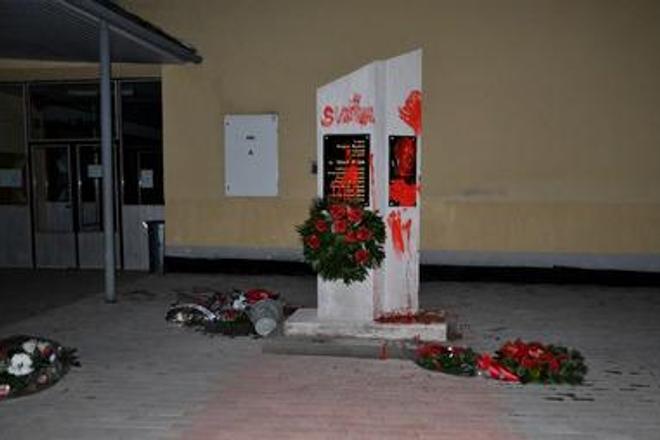I have few clear memories of my maternal grandmother, who died when I was a teenager. But I do remember the disdain in her voice whenever she used the word ‘German’ – an icy tone she reserved for words like ‘masturbation’ or ‘rock and roll’. She was British, and in her 20s had served in a London hospital during World War II. No, she did not approve of Germans.
So I can understand the emotions that people like former Czechoslovak Communist Party leader Vasil Biľak still arouse in many Slovaks. Biľak, you may remember, was among the signatories on a letter inviting “brotherly assistance” from Warsaw Pact troops to halt the thawing of communism during the Prague Spring in Czechoslovakia. Even people who remember communism fondly may rightly regard Biľak as a traitor – the crime with which he was charged but never convicted of. To see him eulogized and ennobled by a statue, even one erected by doddering communists in a forgotten village like Krajná Bystrá, is guaranteed to produce an outpouring of disgust.
But Saturday’s RTVS TV report covering the unveiling of the statue is a skunk of a different stripe. In journalism it’s called false objectivity, which means a news story that provides equal space to both sides of an issue, and leaves it up to “the viewers to decide” – when in fact there is only one way for civilized people to regard the matter. Which in Biľak’s case is as a traitor who sanctioned an invasion that killed more than 100 of his fellow citizens.
In the lead-in to the Biľak story, the news anchor gives us a clue that the truth is going to take a beating in what follows. “Opinions (on Biľak) vary,” she promises, and the story delivers – even mayor Ján Štefanco, who used to have the support of opposition parties SDKÚ, SaS, KDH and Most-Híd, describes Biľak’s relations with his hometown as “genuine and admirable”. While a Slovak Academy of Sciences historian paints Biľak in slightly darker colours as “an agent of the Soviet Union”, Slovak Communist Party chairman Jozef Hrdlička is allowed to counter that “international assistance was necessary, if we hoped to preserve socialism”. What to think indeed.
It is entirely legitimate for Slovaks to hold and voice various opinions about Biľak and about communism. But for the state TV network to present the crime of the 1968 invasion, and of the people who made it possible, as issues on which “historians remain divided”, is to fail in its public service mission (which, lest we forget, is to fairly and accurately report the news). “Opinions vary” on Adolf Hitler too – as you might find if you canvassed the lads of the Slovan football mosh pit after their ninth beers. But warm opinions of neo-fascism, like fuzzy portrayals of communist opportunists who sacrificed their country for their careers, do not belong on public television.
I know what my granny would have done, if I told her that “opinions vary” on the Battle of Britain. She would have snatched up her cane and beaten me with it, as she did once when she caught me stealing her cigarettes. And I can’t say I wouldn’t have deserved it.



 (source: TASR)
(source: TASR)